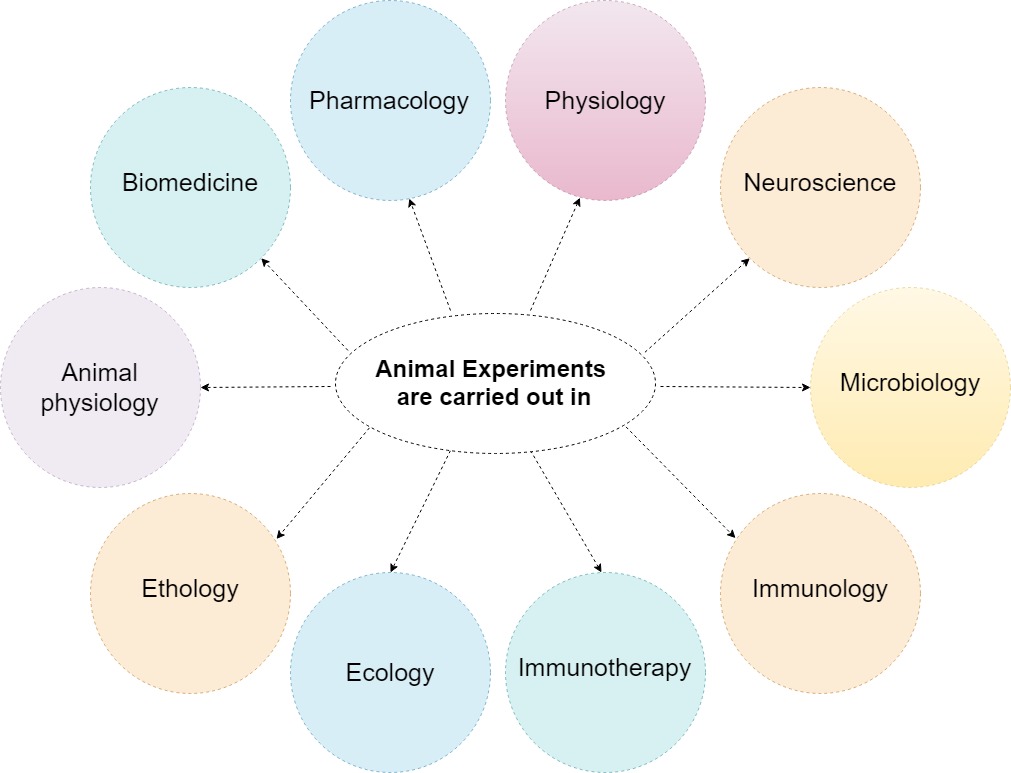Why animal research?
Humans and other animals are relatively similar. For instance, humans share about 95% of their genome with mice, the most common laboratory animal. Animals are therefore often used as a models of human where legislation or ethical considerations do not allow experiments with humans.
Animals are not only used as a model of human, but may also be the subject of scientific interest themselves, e.g. in veterinary medicine or in basic research in biology. The result is a broad spectrum of research areas that may benefit from animal experimentation:

external page Understanding Animal Research provides an overview and explanations of animal experiments that yielded breakthroughs in medicine on a global scale.
Further websites on animal research: external page University of Basel, external page Reatch
At ETH Zurich animal experiments are performed only when no other alternatives are available and result in obtaining of novel knowledge in various areas of Life Sciences such as Biomedicine, Ecology, Immunology, Microbiology, Neuroscience, Pharmacology, Physiology, which are regularly shared with scientific community. Research projects involving animal experimentation at ETH are equally focused on fundamental (for example, when neuroscientists elucidate processes occuring in the brain during stress situations from molecular till the whole organ level) and applied questions (for example, development of anti-cancer therapeutics).
An answers to this question necessarily contains a subjective component which makes it controversial.
The base of the social justification of animal experimentation is a so-called harm-benefit analysis. Such an analysis compares the values of two desirable goals and gives priority to one of them. For instance, important new knowledge might be considered as weighing heavier than the avoidance of animal suffering.
In the license application to the Cantonal Veterinary Office, researchers planning animal experiments are required to write their own harm-benefit analysis in which they need to justify their point of view. The analysis is based on the following aspects:
- the knowledge gained by the proposed experiments and its relevance for research and society
- the degree of animal suffering
- indispensability of the animal experiment and the caused suffering
Addressing these points serves to create an intersubjective base. Nevertheless, a subjective component remains in every harm-benefit analysis because the compared goods are impossible to quantify. This is why experiments with the potential to cause suffering are not evaluated and decided upon by a single person but by the Cantonal Committee for Animal Experiments and the Cantonal Veterinary Office.
As an institution whose mission is determined by the Swiss federal government and which takes on social responsibility, ETH Zurich has the duty to consider diverse views on animal experimentation and to mediate between them. This does not only include the viewpoint of researchers, but also those of the legislation, various parts of society such as medicine or agriculture, and the public.
The Swiss Animal Welfare Act (external page Tierschutzgesetz) states that nobody may cause pain, suffering, damage, or fear to animal or neglect its dignity without providing a justification. The Animal Welfare Act and other regulations cannot be implemented without the support of institutions such as the Cantonal Veterinary Offices and certain control mechanisms.
In 2022, the “Animal Experiments Ban Initiative”, which aimed to ban all animal experiments, was presented. 79% of the Swiss population spoke out against this proposal.
It is ETH Zurich's position to support experiments that generate new and relevant knowledge for the society, while strictly complying to regulations and striving to reduce, replace or refine animal experiments (3R Principles) as far as possible.